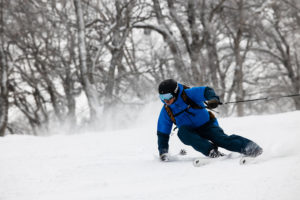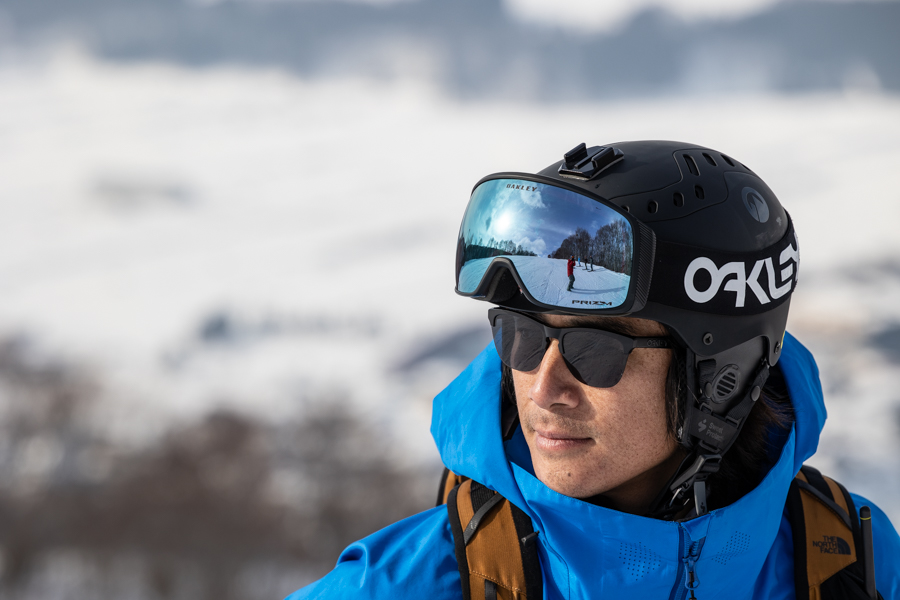Interviewer/Risa Obinata Photo/Hiroshi Suganuma
INDEX
Beginning as a ski crosser, Kenji Kono shows aggressive skiing in freeskiing videos and photographs, proposes new activities such as tree camps and SUP during the green season, and develops vector glide skis.
Since June 2020, he has been the chairman of the tourism association of his hometown, Nozawa Onsen Village. While inheriting the history of Nozawa Onsen Village, where the skiing culture has remained strong since ancient times, Kenji is now blowing a new wind into the small village by making use of his knowledge spread around the world. From his days as a player to the present, Kenji Kono's ski life and the future of Nozawa Onsen will be explored.
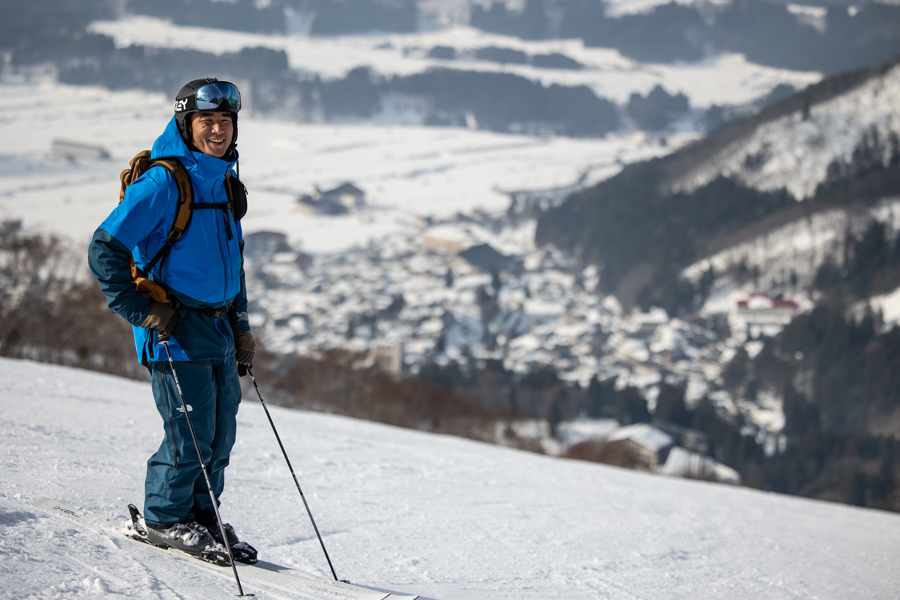
[Profile]
Kenji Kohno
Born in 1983 in Nozawa Onsen Village, Nagano Prefecture. He started skiing at an early age and later competed around the world for 12 years as a ski cross World Cup competitor. Currently, based in his hometown of Nozawa Onsen, he is involved in the development of skis as a marketing manager for Vectorglide, as well as holding “nozawa green field”, which provides camping and nature experiences using handmade tree houses, SUP tours, etc. , active in many fields. He is the chairman of the Nozawa Onsen Tourism Association.

When he was a boy competing with Yudai Ueno in alpine skiing
──When did you start skiing?
My earliest memory is when I was around 4 or 5 years old. The first time was when a regular lady at my inn (*1) took me there. My parents are busy in the winter, so I can't go skiing with them, and my older brother (*2) has started skiing, so I had no choice.
──Reluctantly? ?
At first, I hated skiing. Suddenly I was taken to the Skyline Grand Prix course. I was not good at it. My grandfather ran a ski rental business at Hikage Slope and had a lot of equipment, so I guess it was inevitable that I started skiing.
──You fell in love with skiing halfway through, didn't you?
I joined the Nozawa Onsen Ski Club (*3) when I was in my second year of elementary school. There was a GS tournament at Minami Shiga Onsen (currently Yamaboku Wild Snow Park) and I came in third. It was around that time that I started having fun.
──Do all the children in Nozawa Onsen join the ski club?
There are a lot of people in the lodging industry. I hope your parents are happy. I go to practice as soon as I come back from school, come back around 20:00, eat dinner and go to bed right away when I'm tired. On weekdays, I went to the Kandahar course for night games, and on Saturdays and Sundays, I went out to competitions.
── So you were addicted to racing from the second grade of elementary school to high school. Do you have a particularly memorable episode in your racing career?
At the ski club, classes are divided into 1st to 4th graders and 5th to 6th graders.
When I was in the third grade, I was in good shape and thought that I would win all the competitions in the fourth year. I shook it with a stick. Around this time, Yudai Ueno (*4) and I were competing for 1st and 2nd place in a tournament in Nagano Prefecture. I was determined to win all 6, but I caught the pole again and injured my knee ligament and bone.
I finished 2nd in the prefectural tournament in my second year of junior high school, and entered the national tournament as the number one seed, but suddenly I had severe back pain. It was frustrating.
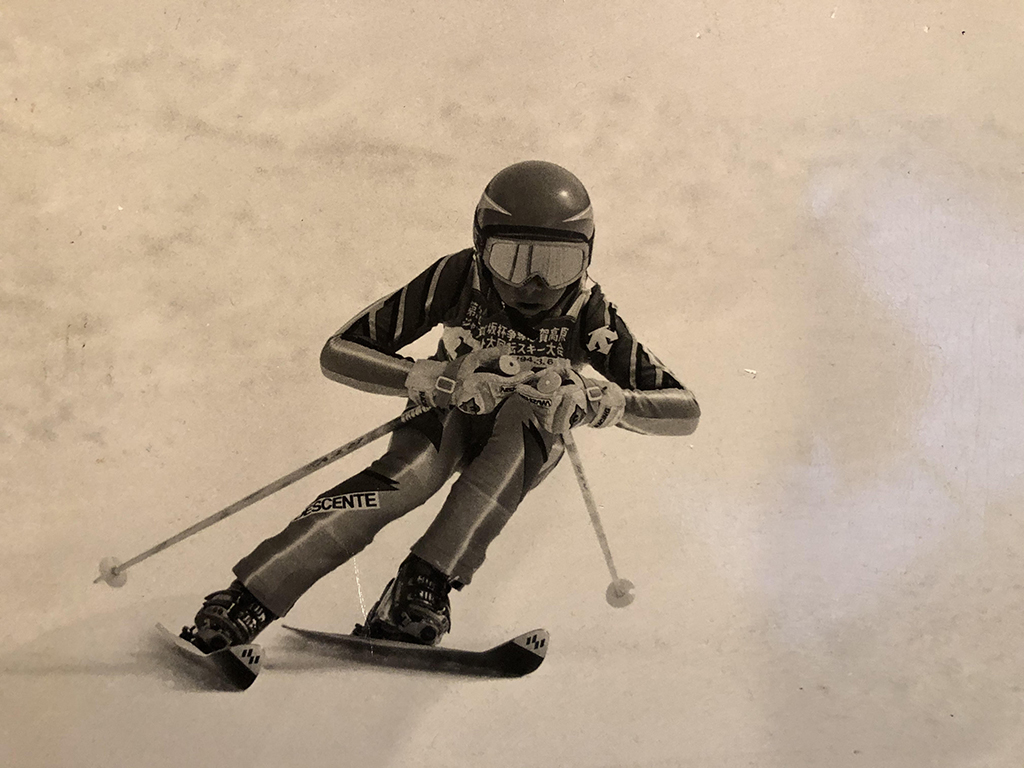
──It's a battle against injuries. But it's amazing that Kenji Kono and Yudai Ueno, who are now active in the world of freeskiing nationwide, have been competing for 1st and 2nd place in the ski kingdom of Nagano since they were in elementary school. Was your dream to become a skier?
Well, I was a skier all my life. I skied to Iiyama Minami High School (*5) without any career guidance in my 3rd year of junior high school, and I didn't even ask for career counseling in high school because I didn't think it was necessary.
──Didn’t you think about going to university?
My dad always used to say "If you want to study, I'll give you money, but if you go skiing, I won't give you a penny." I didn't get good grades in high school, so I knew it would be difficult to continue as a racer. For the time being, in March of my third year of high school, I participated in the Nobeyama FIS race. I didn't get any results, but I felt like I was going to end it with this.
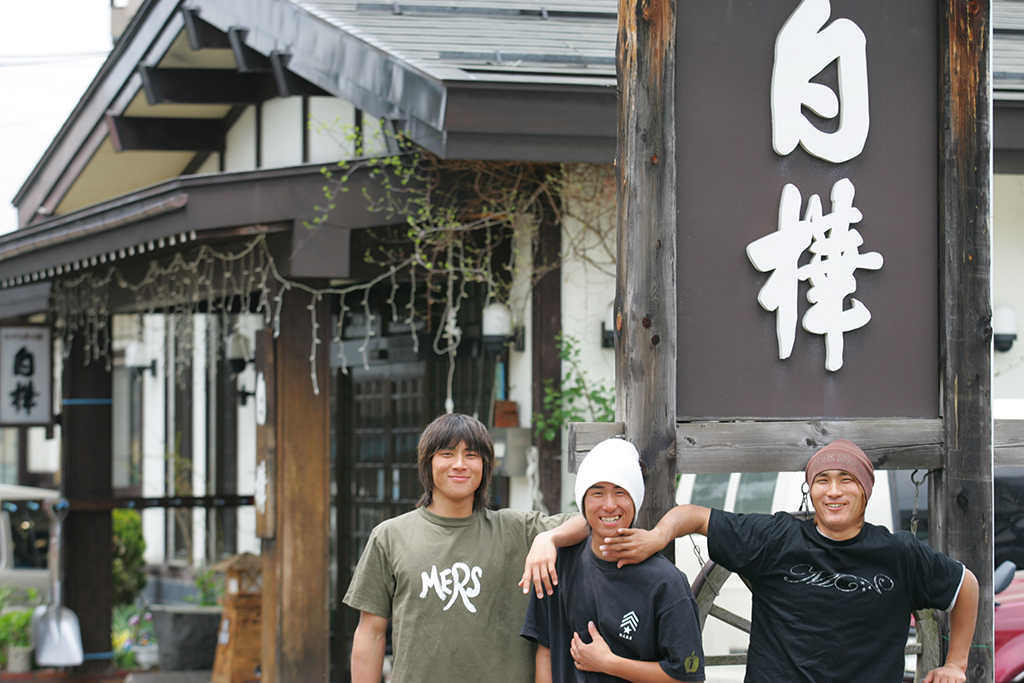
──What are you going to do after that?
I had nothing to do in Nozawa Onsen, so I started working part-time as a messenger at the invitation of a friend in Tokyo. I thought that if I went to Tokyo, something would happen.
──Did you find anything when you went to Tokyo?
The messenger part-time job was really interesting, and a young man who didn't know anything about the roads of Tokyo was able to join the top sales team within three months of joining thanks to skiing. I think it was a good job for him to move his body. I still keep in touch with my colleagues from that time, and they come to Nozawa every year to visit us.
*1 [Uchi no Yado]
Kenji Kono's parents' home is "Yasuragi no Yado Shirakaba" located in the center of Nozawa Onsen Village.
*2 [Big Brother]
Kenji's older brother Katsuyuki Kawano is also a skier. He went to Austria to study skiing, was active as an alpine skier and ski cross player, and also produced a video work on freeskiing.
*3 [Nozawa Onsen Ski Club]
Founded in 1923 (Taisho 12) in Nozawa Onsen, which was still only visited by tourists, with the aim of revitalizing the village through skiing. In the past, ski clubs were responsible not only for technical training, invitations to competitions, and player training, but also for the management of ski resorts. It has also produced many Olympic athletes.
*4 [Yudai Ueno]
A skier born in Nozawaonsen Village. After working as a competitive skier, he switched to ski cross and halfpipe competition. As a halfpipe player, he is not only active in himself, but also works to spread the competition and train players. He currently runs a ski shop "COMPASS HOUSE" in Nozawa Onsen.
*5 [Iiyama Minami High School]
This is the only public high school in Nagano Prefecture that has a sports department, and has produced numerous skiers as a prestigious ski school. Currently, it merged with three neighboring schools to form Iiyama High School.
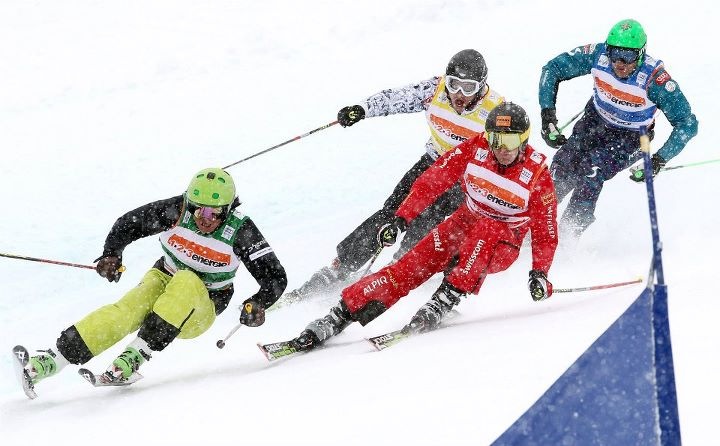
Encounter with ski cross
The beginning of a second ski life
──When did you start ski cross?
In the winter, I took a break from working as a messenger and returned to Nozawa for the winter in order to help out because my parents' business was busy.
At that time, Akifumi Kitamura (*6) from Madarao had a ski cross competition, so why not come out? Invite me. I didn't even know ski cross existed yet, but Masayuki Ueno (*7) and I went to Hokkaido and participated in the Japan Cross Game Masters (*8) held in Teine. At that time, I was eliminated in the semi-finals, and the winner was Mr. Akiba (*9). In the semi-finals, I competed with Mr. Akiba, and I was the top at first, but Mr. Akiba was knocked out on the bank halfway through and won.
──So you met Akiba-san all of a sudden at a race. So you fell in love with ski cross?
Twice in my life so far, there have been moments when I felt a strong sense of unfounded confidence, but this was the first time. I thought I might be able to go to the world with this sport. During this season, I participated in grass tournaments every weekend and played around 20 races. The following year, it was decided that ski cross would be included in the World Cup.
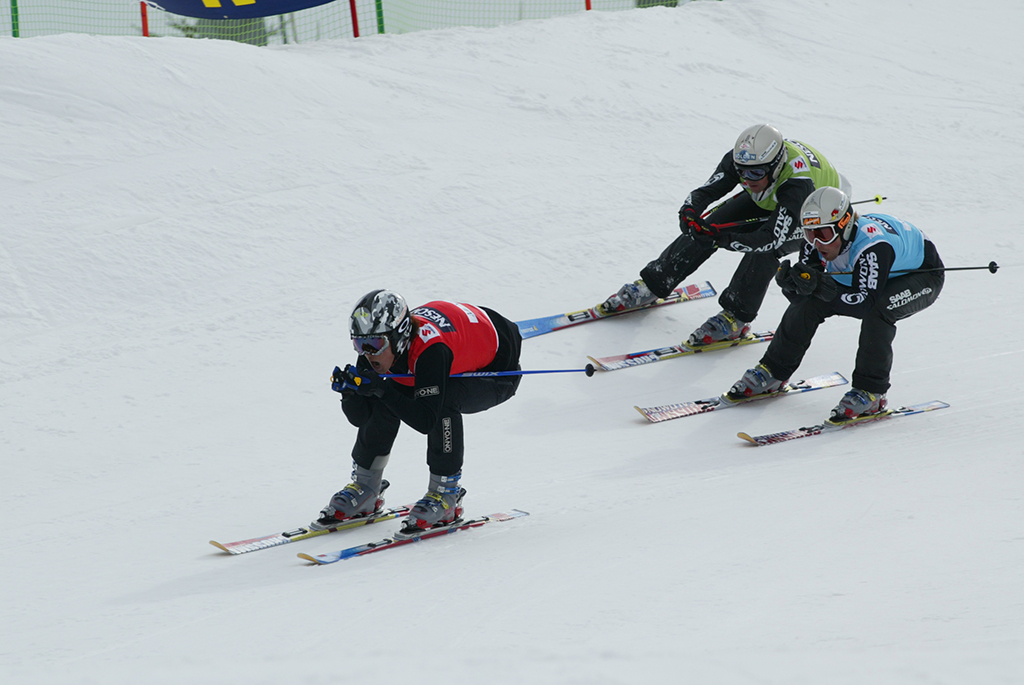
──So you returned to the path of a skier。
When I started working as a messenger, I declared that I would never ski again, but when I said that I would quit my part-time job because I was aiming for the World Cup in ski cross, they were astonished and asked me if I would ski again after all. I'll support you! and give me a push on my back. At that time, Salomon released a ski called Crossmax, and I, Masayuki Ueno, and Yudai joined the Salomon team.
──So to the World Cup?
Well, at that time, SAJ was in a state where anyone could participate in the World Cup.
In addition to our friends from Nozawa Onsen, there were about 13 or 14 people, including Mr. Akiba, Mr. Takizawa (*10), Daisuke Fukasawa from Hakuba, Mr. Kobayashi from VIC, and Mr. Godai Sakamoto from Sapporo. The opening round was Tignes (France), and in the beginning, the top 32 qualified for the timed race. I started from 80th, but halfway through the fog came up and I couldn't see anything, so I ended up in 36th. At that time, I was still young and didn't understand the unfair race, and I didn't have the money to participate in the second race at Laax (Switzerland). But in the final round at Les Contamines (France) in March, I finished 7th.
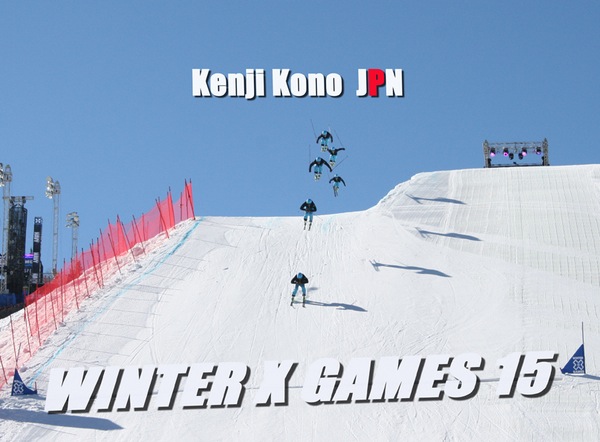
──You're still around 20, right? Are you young as a player?
I agree. Ski cross is a sport where experience counts the most, so there were many athletes who retired from alpine skiing and switched to ski cross, and I was always the youngest.
──After that, you were an athlete for a while.。
After I finished 7th, Salomon started supporting me with expenses for expeditions, but I couldn't live on that alone, so during the summer I trained during the day and delivered alcohol to a store in Kabukicho at night. I also did a part-time job like that (laughs).
I did everything With that base, I gained confidence that I could do anything even if I lost my job.
*6 [Akashi Kitamura]
A skier from Madarao Kogen. After competing in the World Cup for four years in ski cross, he produced a tree run course in Madarao Kogen and now operates a backcountry tour service in Madarao Kogen.
*7 [Masayuki Ueno]
A skier born in Nozawa Onsen village. He is Yudai Ueno's older brother and is well versed in all genres such as alpine and ski cross. He is currently working at Nozawa Onsen Ski Resort.
*8 [Japan Cross Game Masters]
Ski cross and snowboard cross competitions held all over Japan. Mild Seven was the main sponsor, and the prize money for the super final was 700,000 yen.
*9 [Masayuki Akiba]
After being active in various genres as a professional ski racer, demonstrator, and ski crosser, he devoted himself to freeskiing and founded the domestic ski brand Vector Glide.
*10 [Hiroomi Takizawa]
Active as an alpine skier, mogul skier, and ski crosser for many years. In ski cross, he won the X Games, won the Crystal Trophy at the World Cup, and participated in the Vancouver Olympics.
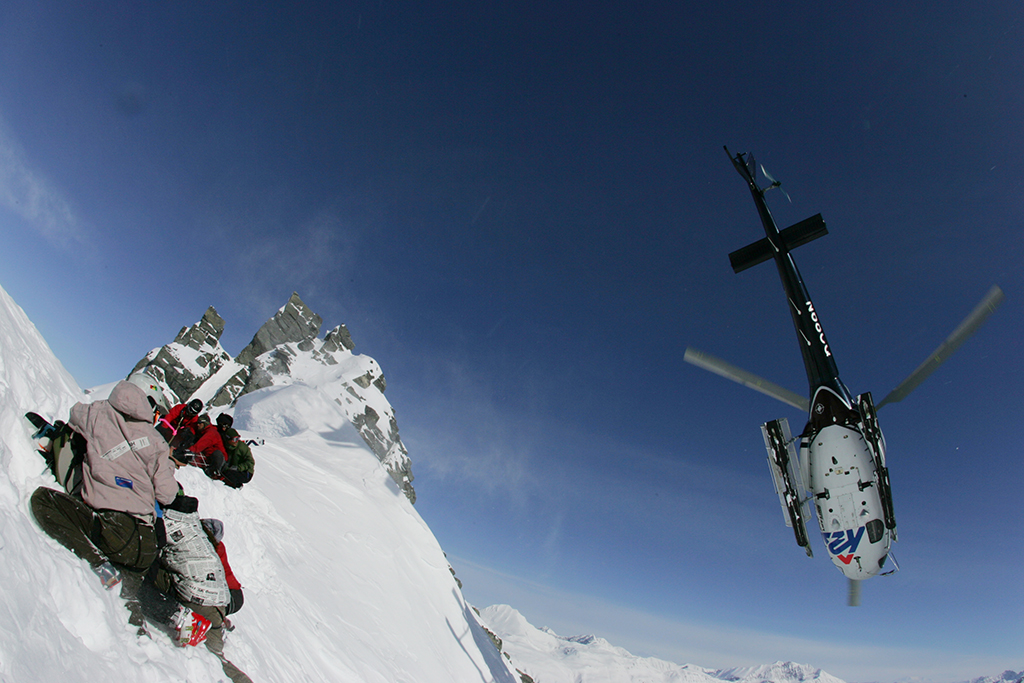
Challenge the large slopes of Alaska while fighting around the world. In anticipation of his second career
──What were your results after that?
I started participating in the World Cup from the 2002-2003 season, and for about four seasons my annual ranking fluctuated between 20th and 28th. In 2007, he finished 4th at Inawashiro and ranked 14th for the year. I didn't stand on the podium, but that was my best result.
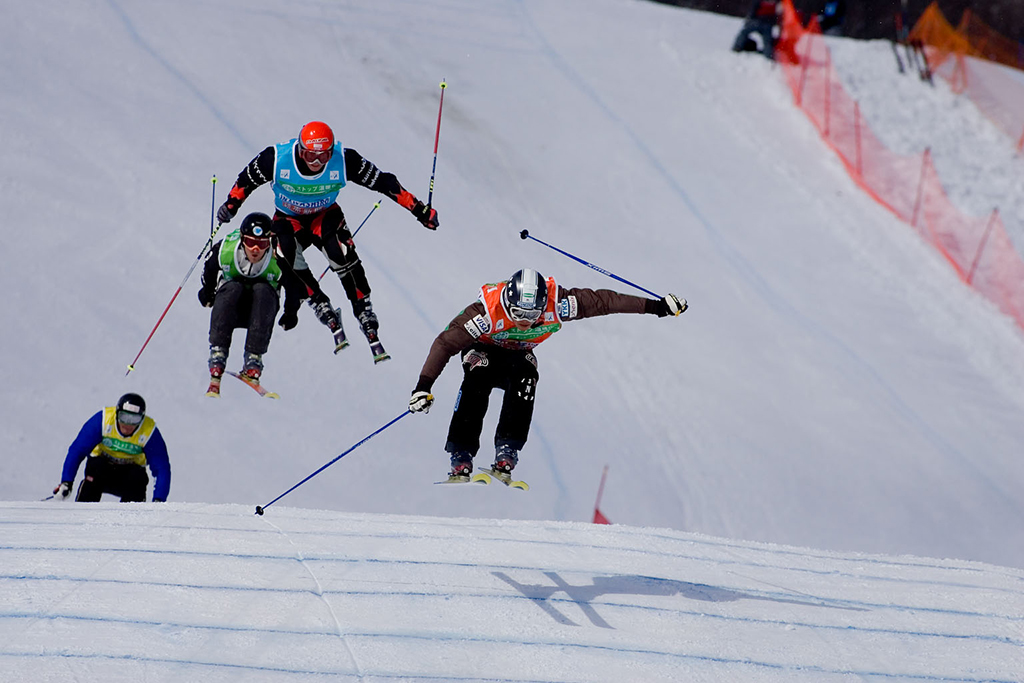
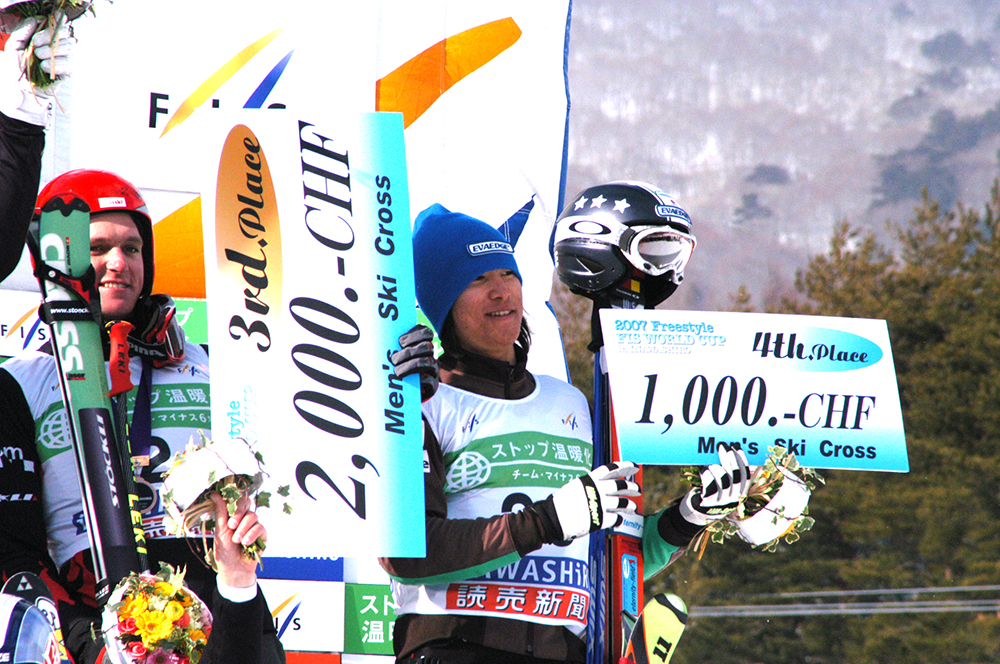
──While doing ski cross, you appeared in a video work about free skiing, right?。
Yes, when I went to Tignes for the first time, I was with people who skied in all kinds of genres, so it was great that they taught me various things, such as backcountry skiing and pipe. .
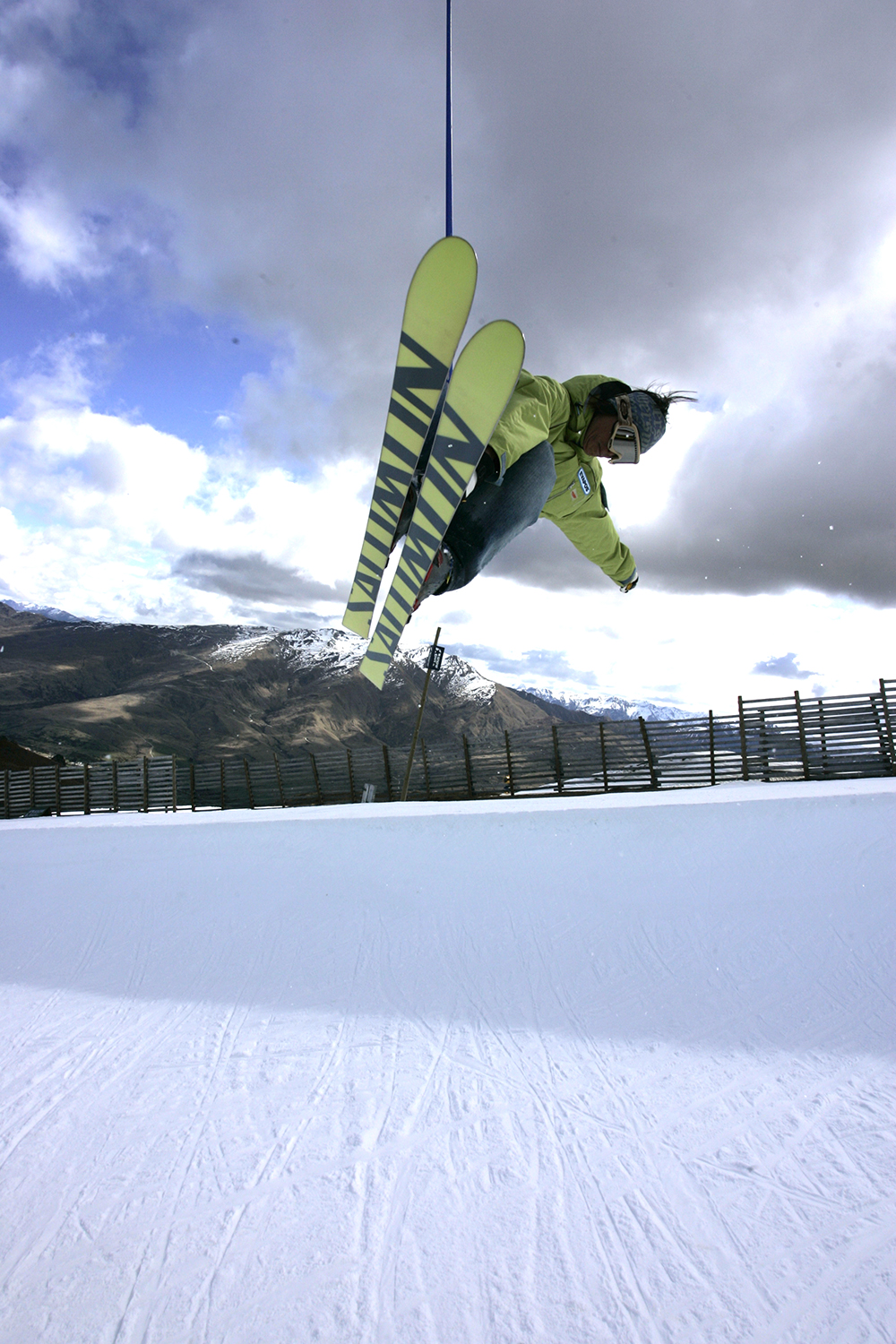
Pipes are also connected to ski cross training Photo: Wataru Sugimura
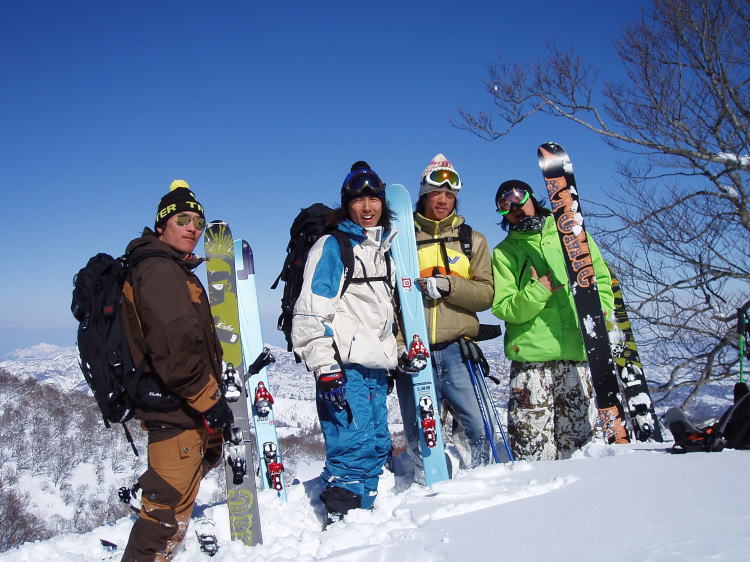
──Is it different from when you were devoting yourself to alpine racing?
I agree. It's the same as aiming to be number one in the competition, but in ski cross, I could make use of it by doing various things, such as skiing down the mountain and jumping. It was a time when I was able to learn both to enjoy winning and to enjoy skiing in the mountains. I was also caught in an avalanche in Alaska.
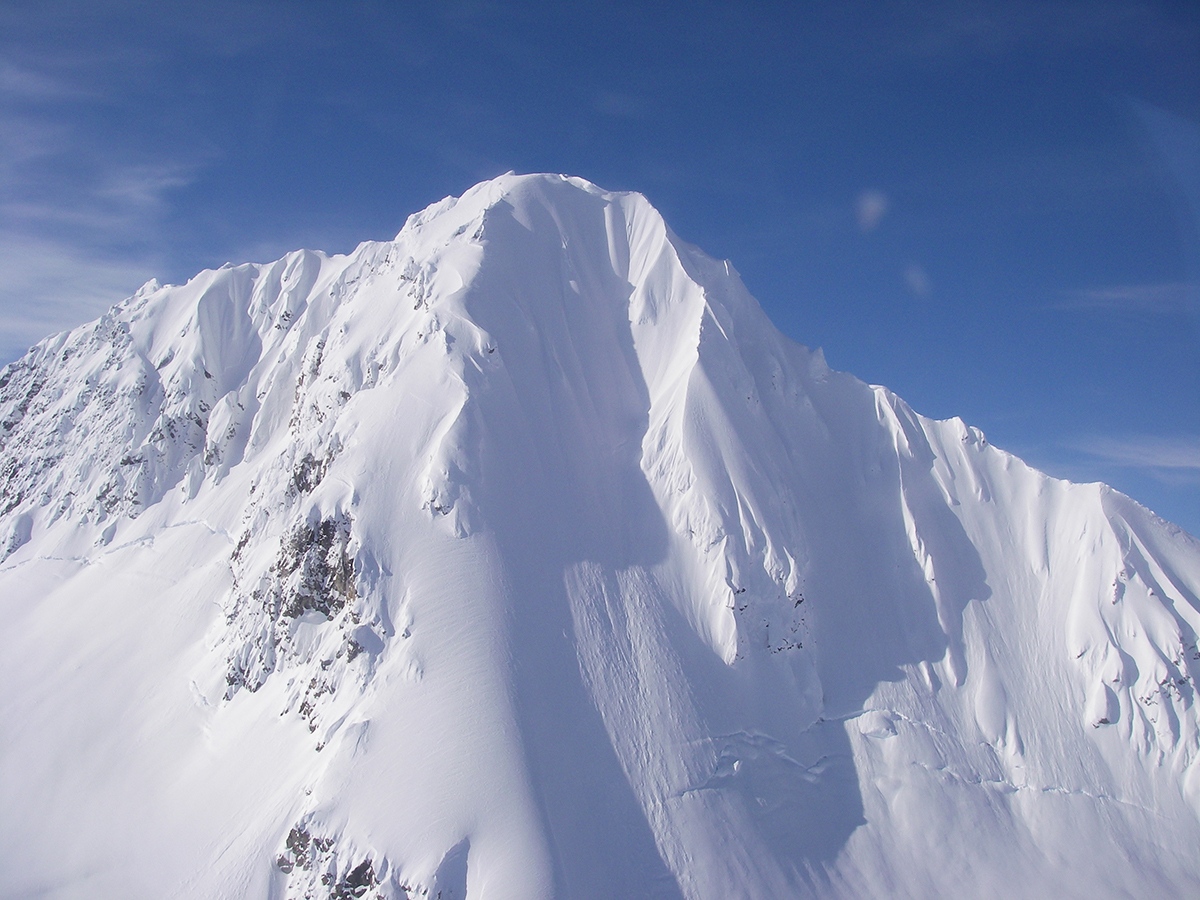
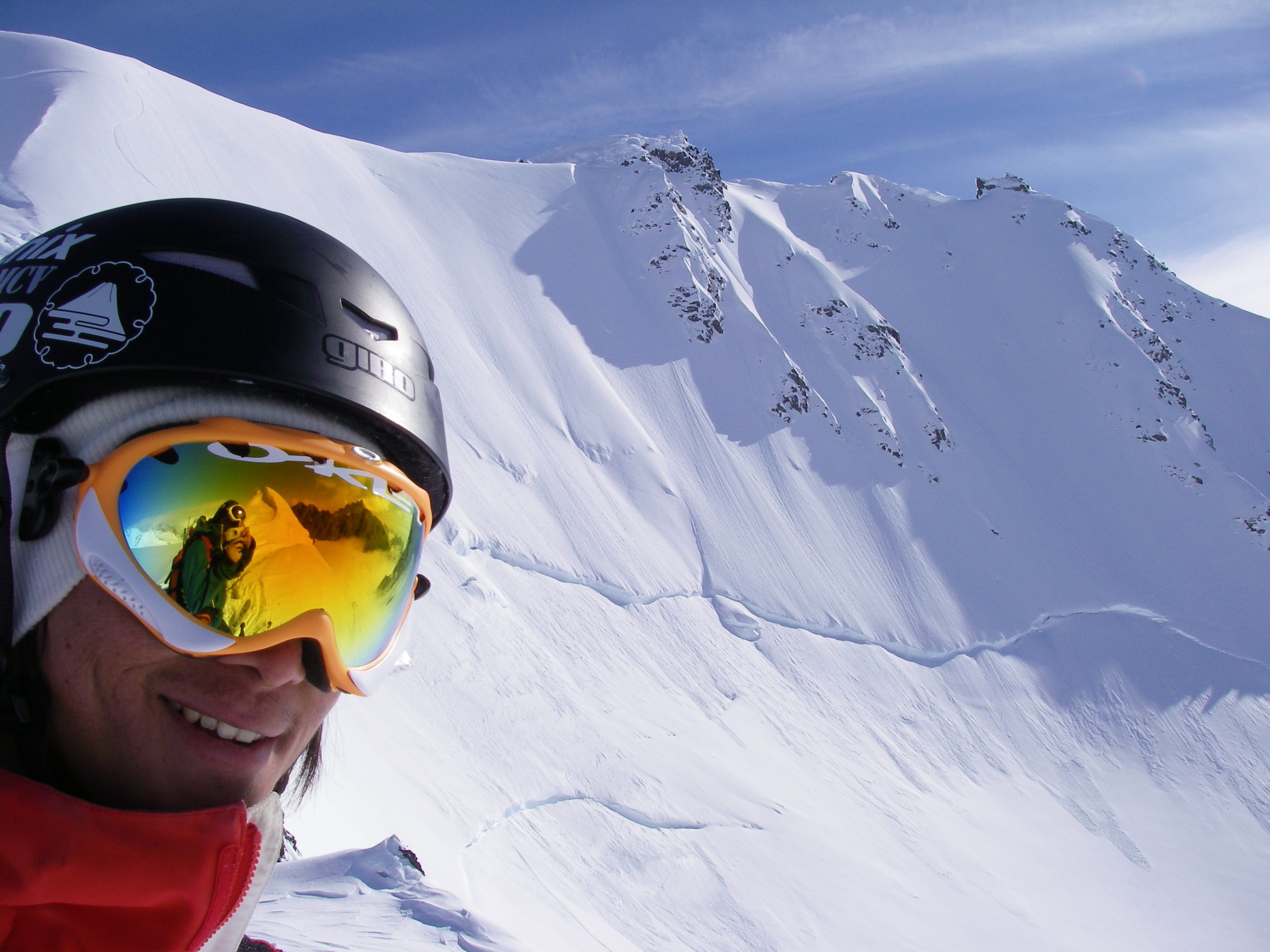
──What has been the most rewarding thing in your long career as an athlete?
An injury in 2009?
I tore his anterior cruciate ligament in the opening round in Tignes. It was the year before the Vancouver Olympics, and I had to have surgery in February. That time was the second time for "Unfounded Confidence". Kentaro Minagawa (*11) was the same doctor as my primary care physician and rehabilitation teacher at the time.
There is only one year until the Olympics, and it is quite difficult to make it in time. Kentaro-san recovered very quickly, but I was told that if I didn't fix it as quickly as him, it would be tough. The words are on fire. He said he would definitely do it. Rehabilitation started the day after the surgery, and I spent about 7 to 8 hours a day rehabilitating. As a result, by the time the summer expedition to New Zealand began, I was completely healed, to the surprise of my teacher. During my rehabilitation, I had the opportunity to talk with various athletes, and it was great that my perspective was broadened.
──But you were one step short of the Olympics.。
There was only one slot for Japanese people, and as a result, I had to continue for four years without being able to participate, but I could not participate in the next Sochi Olympics. But I have no regrets. Because it's so funny right now. If I had made it to the Olympics, my life might have changed, but if I didn't make it, it was the result.
──Did you have an image after retirement?
I've been thinking about a second career since I was 22.
I wasn't sure what to do, but I retired in 2014, and his older brother said he was going to make Shichiryobei (*12) that year, so I thought I'd help out. For two seasons, I worked at the front desk of the inn and made breakfast, but I sometimes wondered if there was any meaning in doing this. Stress builds up and I catch a cold that I don't usually catch many times. After thinking about it, I focused on Nozawa Onsen during the green season.
──Didn't you think about coaching?
I was asked to be an assistant at the Sochi Olympics, but I was quite stoic when I was a player, so I wondered if I could convey my seriousness to other athletes. Because I had friends. Interests other than skiing spread to a wide range, and it became very interesting.
* Continued in Part
*11 [Kentaro Minagawa]
As an alpine skier, participated in four consecutive Olympics in Nagano, Salt Lake, Turin, and Vancouver. At the Turin Olympics, he finished 4th in the SL, becoming the first Japanese player to win an award in 50 years.
*12 [Shichirobei Coffee] A
cafe and lodging facility run by Katsuyuki Kawano, his older brother. In 2015, the building adjacent to "Shirakaba" was renovated by himself. Currently, it is popular as a cafe bar where you can enjoy course meals made with seasonal ingredients unique to Nozawa Onsen.
Interviewer/Editor + Writer
Lisa Obinata
Born in Tokyo in 1980. After graduating from Waseda University's Second Literature Department, she spent 13 years working at a publishing company as an editor for ski magazines such as "Ski" and "POWDER SKI". Since 2013 she is the editor-in-chief of the magazine. She became independent in 2015 and launched the snow culture magazine "Stuben Magazine" with photographer Yoichi Watanabe. In 2020, she moved from Shonan to Iiyama City, Nagano Prefecture, and is practicing a natural lifestyle that is close to the snowy mountains and nature.
